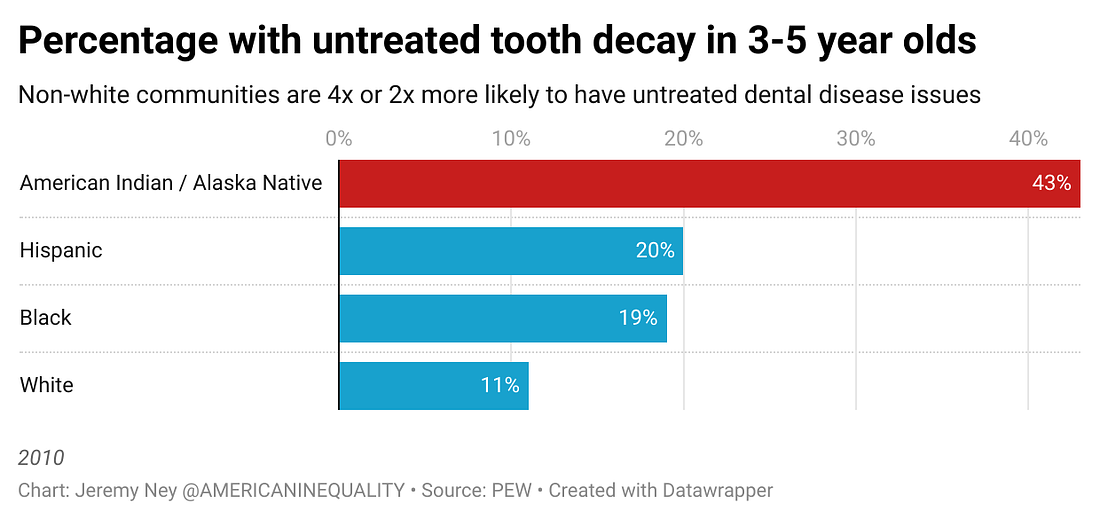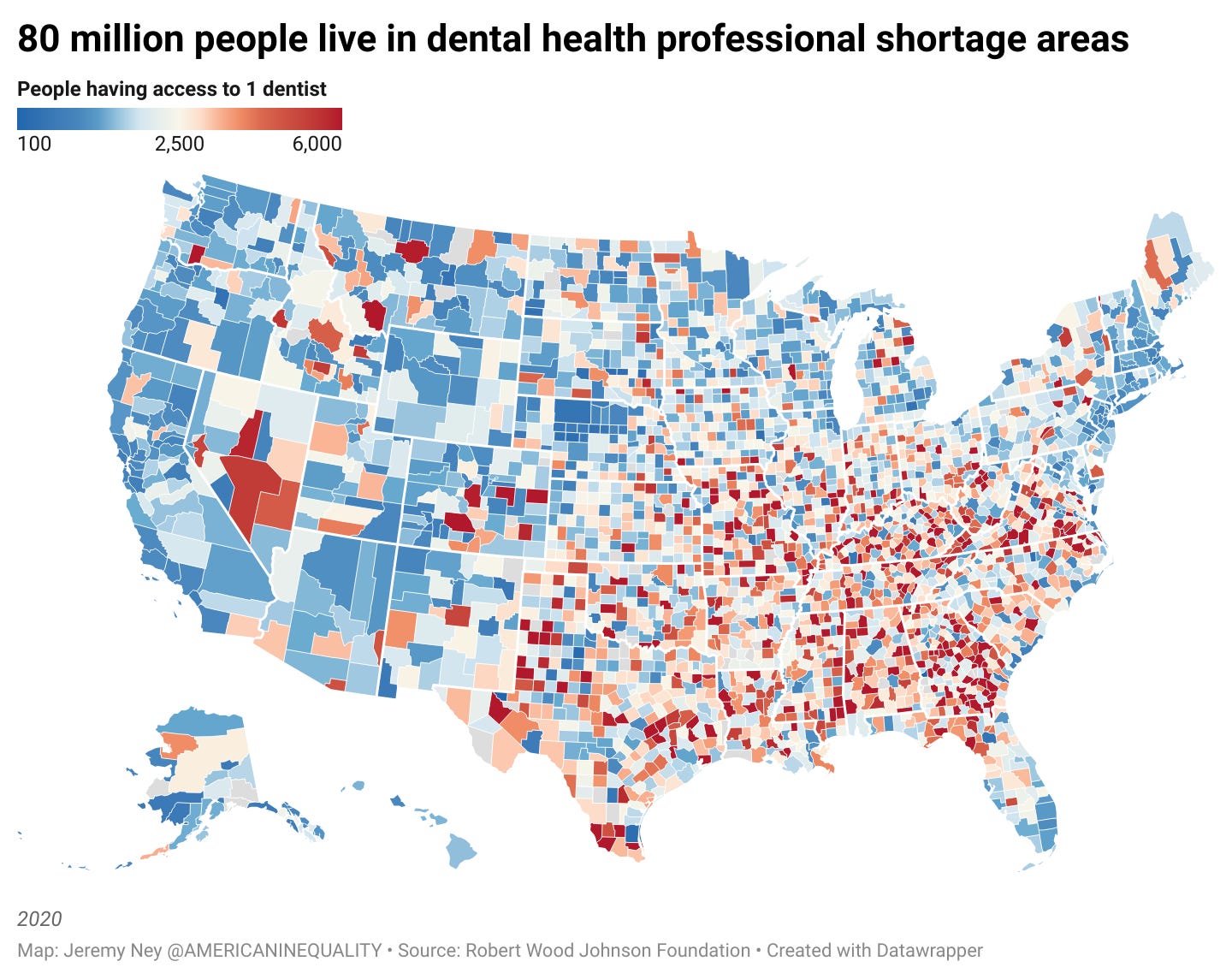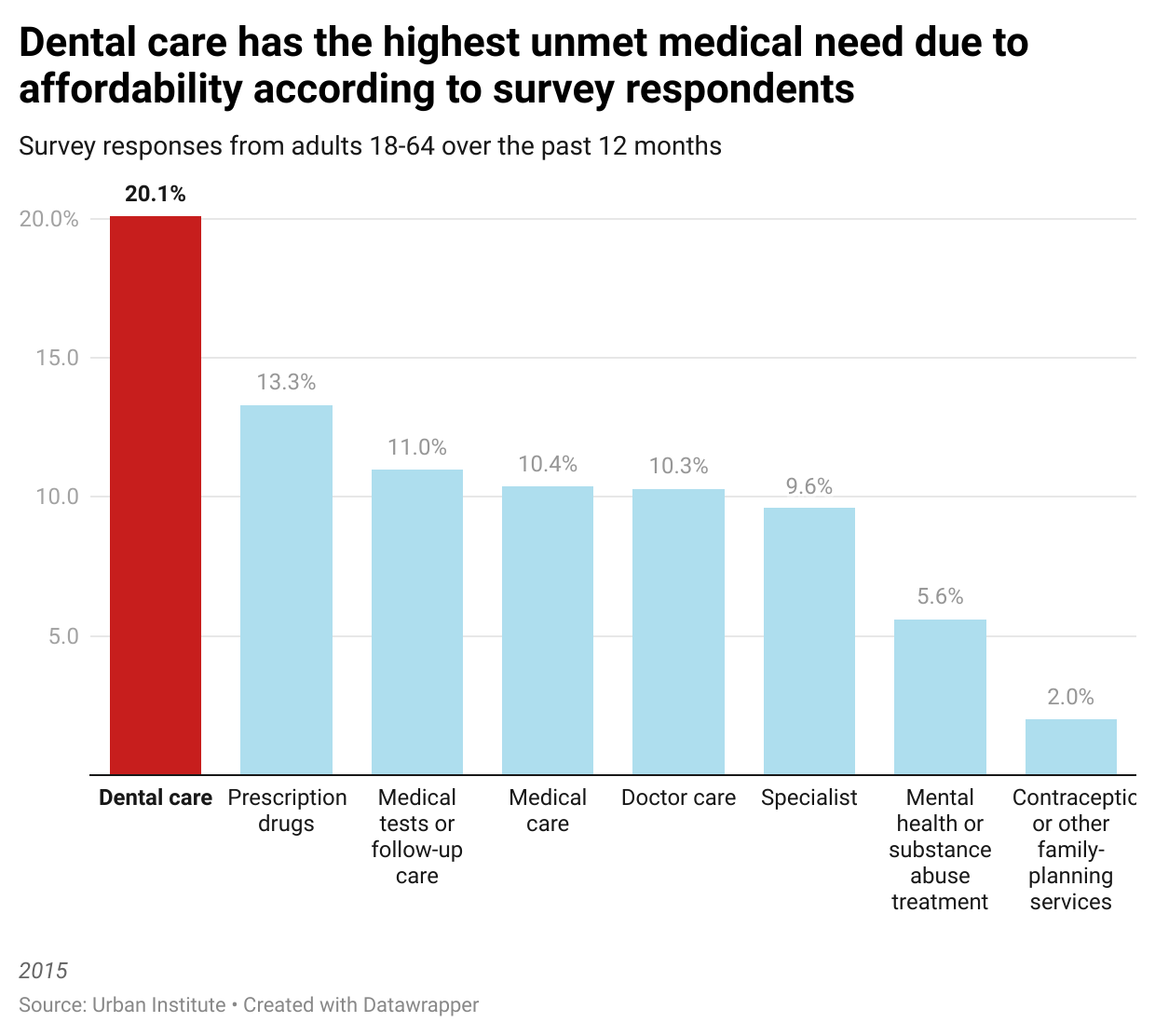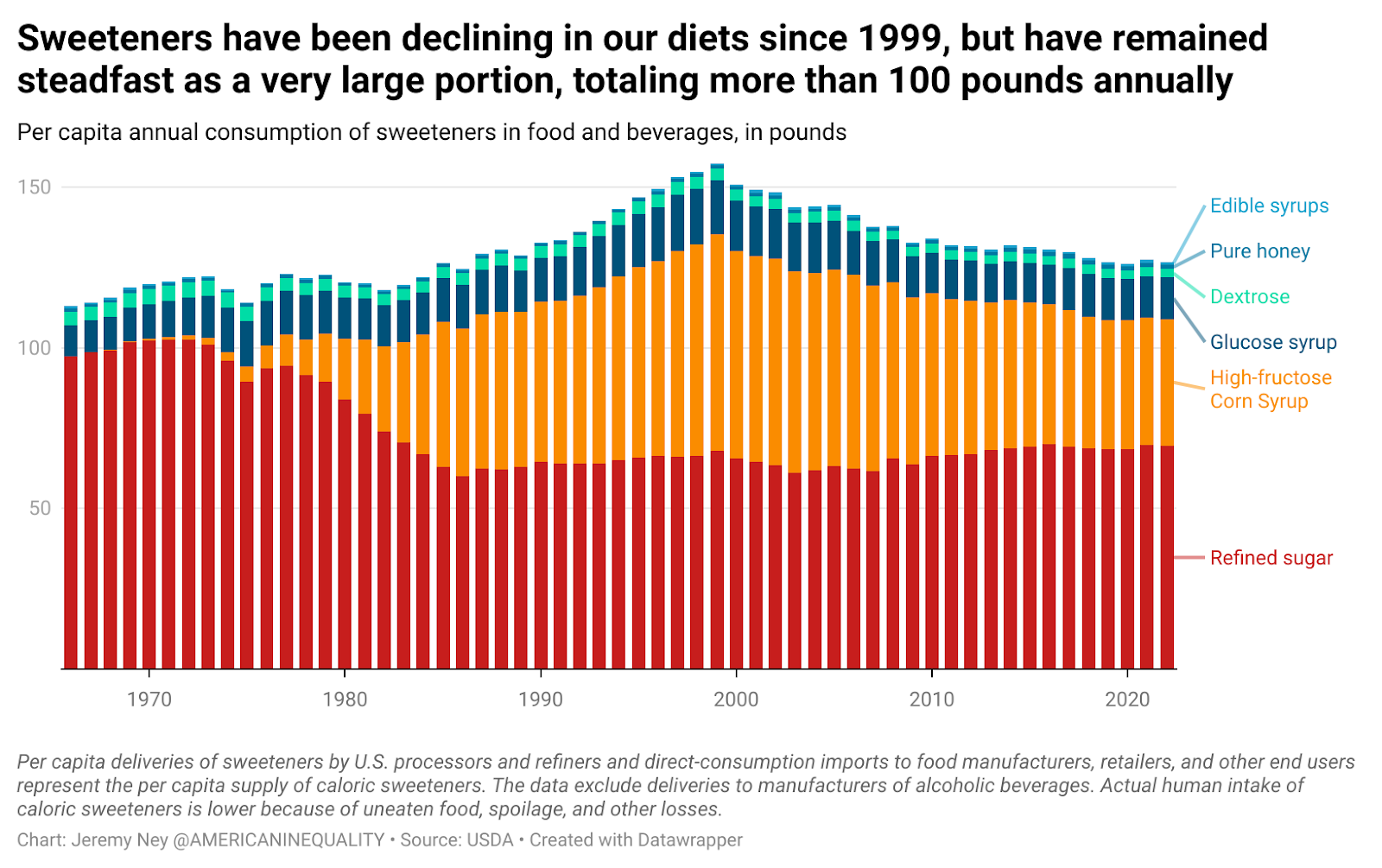Can our teeth predict inequality?
07-02-2024
Can our teeth predict inequality?How bad dental care can lead to lower wages, worse health, and lower life expectancies
I’ve got some VERY big news that I’m excited to share with you… in the coming weeks! Be on the lookout 👀INTERESTING ON THE WEB
Americans who do not receive proper dental care are far more likely to die early, develop heart conditions, and earn less money. For communities that have no dentists, this can often be a hidden factor leading to tremendous inequalities that the US is not properly addressing. Brush your teeth, save your heartOral health is a strong indicator of overall well being — People with poor oral hygiene disproportionately have higher rates of diabetes, cardiovascular disease, and other chronic conditions. WIthout dentists or dental care, communities die younger and have lower incomes as we will show. There is a proven direct link between the number of teeth a person has and how long they will live, particularly later in life. This isn’t just true in the US. One study conducted in Japan revealed that individuals aged 80 without any natural teeth faced a significantly higher risk of cognitive impairment and mortality compared to those who still had 20 or more teeth. Another study looking at a million people found that tooth loss had a strong correlation with heart attacks and heart disease. Dentists are often the first line of defense for several diseases such as oral cancer, heart disease, diabetes, and autoimmune diseases. But for the 63 million Americans living in ‘dental deserts’ (i.e. regions where individuals do not have access to dental care either because there are no dentists or costs are too high), this lack of care can spell disaster. A staggering 67% of those dental health professional shortage areas are in rural communities.  America’s most vulnerable communities are often most at risk of receiving inadequate dental care, which exacerbates other healthcare challenges.
The root cause of that root canalBad teeth can create downward spirals of inequality that can be hard to bounce back from. Several studies have found that people with bad teeth are less likely to be hired as employers “make instant judgements based on appearance.” With fewer job prospects, individuals will have fewer funds to obtain the dental care they require, making them lose even more teeth. Understanding these inequities in oral health is complex, as they may worsen existing conditions or develop simultaneously. Factors such as a diet rich in sugars, smoking, and limited access to dental and healthcare due to financial constraints contribute to these disparities. Gum disease not only appears to worsen blood pressure but also interferes with medications used to treat hypertension, as revealed by the National Health and Nutrition Examination survey. Dr. Larry Hill, executive director of CincySmiles dental clinic program, said “it’s hard to understand how dental care has been overlooked by state legislation, federal measures and insurance companies alike, when the small area of the mouth makes so much of a difference in overall health.” Addressing these disparities requires a comprehensive approach that considers the interconnectedness of oral health with overall health outcomes and the social determinants influencing access to care.
Cost is one of the biggest barriers to accessing dental care. Oftentimes individuals do not have dental insurance, but rather pay out of pocket on an as-needed basis. The portion of the population without dental insurance (27%) is almost 3x as high as those without health insurance (9.3%). Medicaid frequently does not cover the expenses of root canals or crowns, procedures that could preserve teeth, yet it will fully cover dentures once the dental issue has progressed beyond early intervention. Sugar is destroying your teethSugar and teeth are mortal enemies. Young adults in the U.S. consume on average 17 teaspoons of added sugar every day, more than 2-3 times the recommended amount for men and women respectively according to the American Heart Association. Americans consume more than 100 pounds of sweeteners on average each year, or the equivalent of eating about a bowling ball of sugar every month.
Children lose about 34 million school hours because of unplanned dental care, and adults lose over $45 billion in US productivity due to untreated dental disease. Mississippi and Florida have the worst dental careIn 18 states, more than 1 in 4 adults consume a soda or a sugary drink every single day. 1 in 3 adults say they do not consume any fruit in a day. Mississippi is the worst state for soda consumption, with 2 in 5 adults (40%) saying that they consume soda daily. Tennessee follows closely behind with roughly the same statistics. 1 in 4 residents in both states say they consume no vegetables daily. Florida is the worst state when it comes to dental health coverage, with 65 of the state’s 67 counties deemed ‘Dental Health Professional Shortage Areas’ affecting 7.1 million Floridians. Nationally, there are 60 dentists per 100,000 people, while in Florida it is just 51 per 100,000 people. Some Florida counties have just 1-10th the national average at 6 dentists per 100,000 people. Imagine waiting in line with 16,000 other people to see the only dentist nearby! “Floridians are more desperate than ever to find dental care in their communities.. In just one year, the number of individuals living in dental shortage areas grew by more than a million,” shared Dr. Frank Catalonotto, president of Floridians for Dental Access. When speaking with Dr. Brittany Davis, DDS, she gave two examples of low-income individuals dealing with severe medical concerns originating from unaddressed oral health needs. She shared with us a story of an older man who had lost all of his teeth and his diet consisted solely of liquids, smoothies, and mashed potatoes. This inevitably led to worrisome nutrient deficiencies, causing other health complications. Dr. Davis said, “it took many weeks and multiple appointments to fabricate his new pair of dentures. The day I was able to deliver his final set, he cried and said he had been without hard food for so long. To celebrate, he was going to go straight home and cook himself a steak!” Another patient was a middle-aged man from The Bronx who had not been to the dentist since childhood due to financial hardship. He eventually made an appointment with a student dental clinic to receive a check-up for reduced cost. Dr. Davis told us, “when he came in for his initial visit, he had no pains or concerns. However, it was immediately apparent that there was a suspicious lesion on the side of his tongue. We biopsied the spot and it came back positive for squamous cell carcinoma. This is a devastating cancer that is highly aggressive and has poor life expectancy if not quickly caught and treated. Thankfully for this patient, we were able to intervene just in time.” The Path ForwardDental care cannot be a second thought for our healthcare system. We have data-driven solutions for improving oral hygiene that can help improve life expectancies, reduce costs overall for the healthcare system, and support the communities most at-risk of having issues with their teeth.
Investing in oral health today directly contributes to the wellbeing of our future. Taking care to reduce sugar intake, enhance awareness among children, caregivers, and families in low-income areas, and integrate dentists into wellness initiatives, have the potential to transport Americans out of dental deserts and bridge the existing gaps between oral and medical care. These measures have the potential to be life-changing for many Americans. You’re on the free list for American Inequality. Thanks so much for being part of our community! Please share with others and don’t forget to subscribe. Most sincerely, Jeremy |



